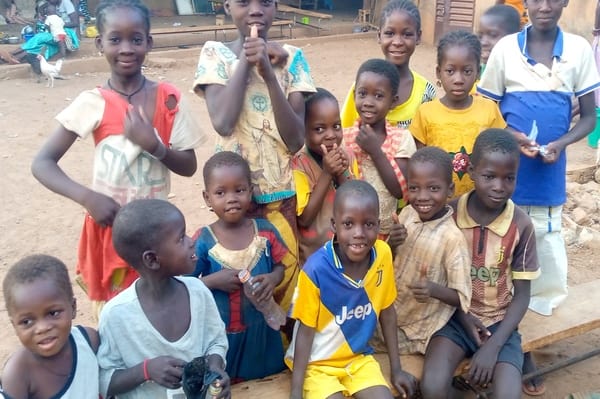Sahel: ACN helps Christians displaced by terror
Aid to the Church in Need has increased its aid to the unstable Sahel region, where, despite persecution, the Christian population is growing.
Africa’s Sahel region, which spans several countries, including Burkina Faso, Chad, Niger, and Mali, is one of the world’s major flashpoints. Islamist terror and hunger go hand in hand here, while civil authorities seem to be losing control, and Western forces are starting to withdraw after a 10-year military presence. They are leaving behind a growing humanitarian crisis, characterized by ruined infrastructure, hunger, and hundreds of thousands of Internally Displaced Persons (IDPs).
Given the destruction and enforced closure of ecclesiastical facilities, like parishes, schools, and hospitals, , the Church in the region is struggling to care for its people. But in many places, it is the only local institution coming to anyone’s aid.
At the end of 2023, ACN Executive President Regina Lynch emphasized the charity’s commitment to . In recent weeks, ACN has stepped up its aid to the Sahel region, and to Burkina Faso in particular. A large portion of the aid, consisting of emergency food supplies and medicine, will benefit Christians who have fled terrorist violence. This aid will also support schools and allow the children of displaced families to continue their education.
Emergency aid for victims
More than 340 Christians from Débé in Burkina Faso were forced to leave their village last year. They are now receiving emergency assistance from ACN, as are 60 families who have taken them in, despite their own poverty. o Bishop Prosper Ky of the Diocese of Dédougou described the situation to ACN: “It is truly distressing to see Internally Displaced People roaming the streets with all their worldly goods, looking for somewhere to stay. In my diocese, there are hundreds of thousands. The majority are women and children.”
Father Etienne Sawadogo, the parish priest of Rollo, a community in northern Burkina Faso, underlined the importance of emergency aid in the form of food and medicine: “How can people live Christian lives when they are constantly hungry? How can people pursue their Christian calling if they are unwell and not receiving any help?”

Living the faith, despite persecution
Though Islamist violence has only worsened since 2015, the Church in Burkina Faso has many vocations. In the Diocese of Koupela, for instance, where fighting between terrorists and security forces is ongoing, the seminary is training candidates. Since many families there cannot contribute to their sons’ training, ACN is supporting the seminarians by paying for their study and travel costs, as well as any medical expenses.
ACN aims to reinforce the faith and hope of those who have been displaced. Father Etienne Sawadogo explained, “We want to help the Christians from Rollo, who have lost everything, to interpret the events and signs of the times in light of the Scripture.” Pastoral work is supported through a variety of measures, including the provision of Bibles.
This is also happening in the Diocese of Nouna, in northwest Burkina Faso, where, alongside Bibles, the Catechism of the Catholic Church is distributed to the parishes. Despite persecution, there are many Muslim converts to Christianity in Burkina Faso. The diocese wants to help these believers to become more familiar with the faith. “It is not enough for the converts to receive baptism and Holy Communion,” says diocesan youth minister Romuald Fuambu Nsanyi. “It is our responsibility to help them grow and become good Christians.”
And in the Diocese of Kaya, ACN is funding the construction of a diocesan pastoral center, to enhance the spiritual welfare of soldiers protecting the population, as well as for the benefit of young people and children.
In 2023, ACN supported 56 projects in Burkina Faso, with more than one million dollars in funds. In addition to this, ACN has provided vital help to Chad, Mali, and Niger, with more than $1M for emergency aid, vehicles, Mass stipends, and seminarian training.
—Sina Hartert

